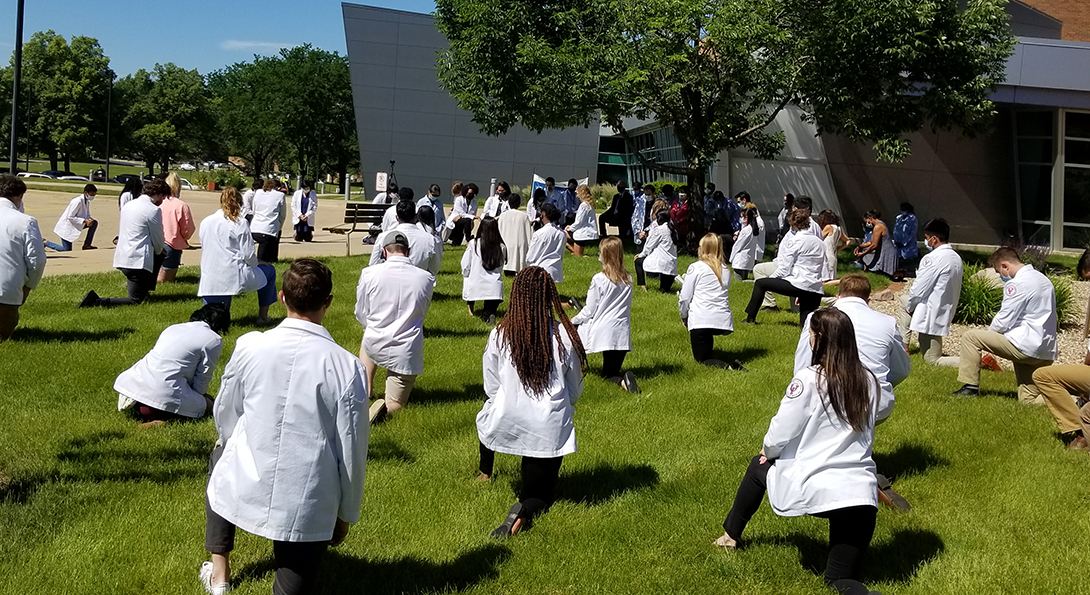Diversity, Equity and Inclusion

The Diversity, Equity and Inclusion initiatives at the Peoria regional campus focus on recognizing, accepting and welcoming the unique qualities and attributes that each one of us as individuals provide to our communities, homes, and places of work and learning. While we value and recognize differences we also affirm our commitment to advocacy and action in supporting freedom, justice and equality for all. With this foundation, we seek to build and sustain a diverse and inclusive community of faculty, staff, residents, fellows and medical students who are committed to teaching, learning, providing care and working in a multicultural environment.
Mission, Vision and Goals Heading link
Mission and Goals
Mission
The purpose of the Diversity, Equity and Inclusion Task Force is to foster community engagement and inclusive environments, recruitment, and retention of diverse individuals, and expand education about health equity and diversity.
Goals
- Establish action plans for mitigating the impacts of racism and/or reducing systemic inequities.
- Lead initiatives to improve policies, processes, and training opportunities that will ensure short and long-term impact.
Vision
Vision
The Diversity, Equity and Inclusion Task Force at University of Illinois College of Medicine at Peoria acknowledges the existence of social, economic, environmental, and structural differences that lead to inequities in our society. Our College is dedicated to the goal of building a diverse and inclusive community of faculty, staff, residents and medical students committed to teaching, learning and working in a multicultural environment. We acknowledge the unique contributions those with varied life experiences and backgrounds have on the advancement of research, teaching, and patient care, and will aim to build a community that recruits, embraces, welcomes, and supports individuals who identify as underrepresented in medicine.